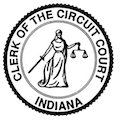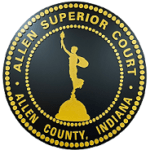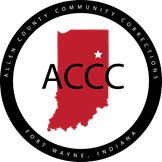Problem Solving Courts
About the Problem-Solving Courts
Over the past decade, a new trend has emerged as a mechanism to deliver justice and forge new responses to chronic social, human, and legal problems – including addictions, recidivism (re-incarceration), mental illness, and poor connectedness to social services – issues proven resistant to conventional solutions. These problems, exacerbated by state-level concerns such as prison population overcrowding, have caused courts to react and establish new court systems—called “Problem-Solving Courts” (PSCs)—specifically designed to enhance the court’s ability to oversee outcomes beyond adjudication, and ultimately reduce the risk of re-incarceration.
Simply put, PSCs are specific courts within the criminal justice system that seek to address the underlying problems contributing to certain criminal offenses and promote outcomes that not only assist justice-involved individuals and their families but provide meaningful reparation for victims and the overall betterment and safety of the community. Through proper assessment, individualized case plans are collaboratively developed by the Problem-Solving Court Judge and a team of community partners and deployed utilizing evidenced-based practices that have shown promising results. From there, the collaborative “PSC team” closely monitors the PSC program participant’s compliance, while imposing appropriate sanctions when necessary. As PSC participants demonstrate stability and attainment of supervision objectives, the Allen County judiciary realizes a gradual decrease in supervision restrictions. Conversely, the Allen County judiciary may utilize various placement options in order to create a continuum of supervision with graduated increases in restrictions—as an orchestrated effort to best supervise offenders in the community prior to placing offenders in Allen County Jail or Indiana Department of Correction (IDOC).
ACCC operates three (3) PSCs—Re-Entry Court, Restoration Court, and Veterans Court—certified by the Indiana Office of Court Services, through the Indiana Supreme Court, and enlists a myriad of community partners to achieve success. The PSC programs undergo regular State review for demonstrative compliance to stringent guidelines and requirements of operational features, participant services, and fidelity to desired outcomes.
For important forms and documents pertaining to Problem-Solving Courts, click here.

Allen Circuit Restoration Court
Certified initially on January 27, 2012, by the Indiana Office of Court Services (formerly the Indiana Judicial Center) as a mental health PSC, the Allen Circuit Restoration Court originally began operations in 2004 under the Forensic Diversion Statute that sought to serve mentally ill offenders repeatedly arrested and incarcerated for drug or alcohol-related offenses, but expanded eligibility criteria as a matter of ethical concern to provide services for offenders with a co-occurring mental illness and addiction diagnosis. Operated by ACCC in collaboration with Allen County Adult Probation, the Restoration Court program is a deferred prosecution program.
A re-certification was granted to the Allen Circuit Restoration Court in April, 20, 2022 for an additional three (3) years. The Honorable Wendy W. Davis serves as supervising Judge, as well as the Restoration Court Judge responsible for daily operations, with Magistrate Jesus Trevino serving as Restoration Court Magistrate.

Allen Circuit Veterans Court
Certified initially on March 20, 2015, by the Indiana Office of Court Services (formerly the Indiana Judicial Center) as a PSC, the Allen Circuit Veterans Court is designed for justice-involved, honorably discharged veterans suffering from an alcohol and/or drug addiction. Operated by ACCC in collaboration with Allen County Adult Probation, the Veterans Court program is a deferred prosecution program, typically lasting two (2) years and 183 days.
Transitioning back to civilian life poses a variety of challenges for any veteran, and participants of the Veterans Court program endure a variety of struggles including, but not limited to, substance abuse, mental health issues, anger management, post-traumatic stress disorder. For that purpose, Veterans Treatment Courts combine rigorous treatment and accountability for veterans facing incarceration due to charges stemming from substance abuse and/or mental health issues, and promote sobriety, recovery, and stability through a coordinated response and understanding that the bonds of military service and combat run deep. In 2016-2017, the Veterans Court began the development of a Veterans Court Mentor program, aiming to provide its program participants with prosocial communicants who understand the veteran experience and culture.
Veterans Treatment Courts not only allow veterans to go through the treatment court process with other similarly situated veterans who have common past experiences, but links veterans with Veterans Affairs services and veteran-specific resources uniquely designed for the distinct needs that arise from their experiences. Veteran-specific resources the Veterans Court program expedites access to include benefits and treatments earned from military service through the involvement of the U.S. Department of Veterans Affairs health care networks, the Veterans Benefits Administration, State Departments of Veterans Affairs, volunteer veteran mentors, and veterans and veterans family support organizations.
A re-certification was granted to the Allen Circuit Veterans Court in August 2021 for an additional three (3) years. The Honorable Wendy W. Davis serves as supervising Judge while Jesus Trevino is the Magistrate for Veterans Court.

Allen Superior Re-Entry Court
Certified initially on August 29, 2009, by the Indiana Office of Court Services (formerly the Indiana Judicial Center) as a PSC, the Allen Superior Re-Entry Court program offers incarcerated individuals, sentenced to a 2-year minimum prison sentence and IDOC commitment, early releases and provides tools with which to successfully re-integrate back into the community with the assistance of electronic monitoring, field officers, and case management. Participants of the Re-Entry Court program participate in job searches, utilizing community employment referral agencies and resources, and work through programming and areas of behavioral change while receiving support from judicial oversight, community/faith-based mentors, and local employers.
A re-certification was granted to the Allen Superior Re-Entry Court in August 2019 for an additional three (3) years. The Honorable David Zent serves as supervising Judge, with Magistrate Samuel Keirns serving as Re-Entry Court Magistrate, responsible for operations.”

